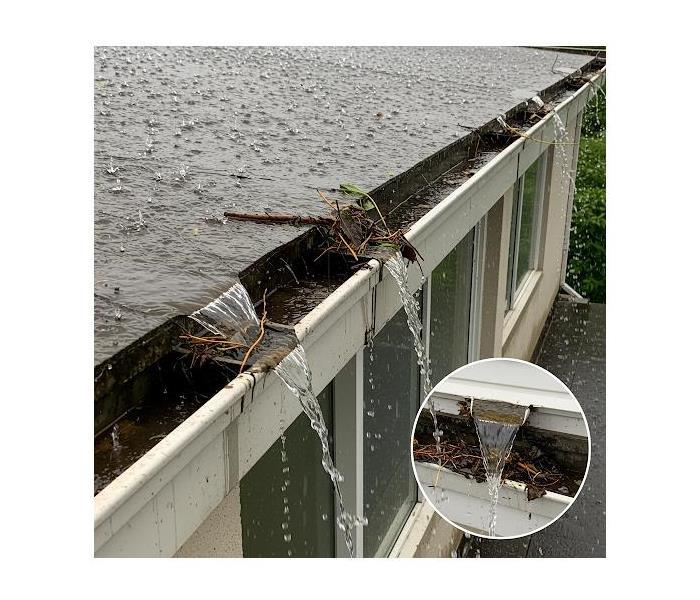Preventing Common Property Disasters: Tips for Property Managers During Spring
3/13/2025 (Permalink)
Spring's arrival signals a welcome change, but for property managers, it also means a new set of challenges. Melting snow, increased rainfall, and fluctuating temperatures can lead to a host of property disasters if preventative measures aren't taken. Here's a comprehensive guide to help you protect your investments and ensure a smooth spring season:
1. Water Damage: The Prime Culprit
- Roof Inspection:
- Thoroughly inspect roofs for damaged shingles, leaks, and debris buildup. Winter storms can cause significant damage that becomes apparent during the spring thaw.
- Check for ice dam damage, which can lead to water seepage into attics and walls.
- Clean gutters and downspouts to ensure proper drainage. Clogged gutters can lead to overflowing water and foundation damage.
- Foundation Checks:
- Examine foundations for cracks or signs of water intrusion. Spring rains can exacerbate existing cracks, leading to structural issues.
- Ensure proper grading around the property to direct water away from the foundation.
- Check basement and crawlspace for dampness or standing water. Install sump pumps if needed.
- Plumbing System:
- Inspect pipes for leaks and damage caused by freezing temperatures.
- Test sump pumps and drainage systems to ensure they are functioning correctly.
- Check for signs of backflow in sewer lines.
2. Landscaping Hazards:
- Tree and Limb Inspection:
- Assess trees for weakened branches or signs of disease. Spring storms can cause damaged limbs to fall, posing a safety hazard.
- Trim overgrown trees and shrubs to prevent them from interfering with power lines or causing damage to property.
- Ground Erosion:
- Monitor for soil erosion around the property, especially on slopes.
- Implement erosion control measures, such as retaining walls or proper landscaping.
- check for proper drainage away from walkways and driveways.
- Pest Control:
- With the warmer weather, pests like termites, ants, and mosquitoes become more active. Schedule pest control inspections and treatments as needed.
- Eliminate standing water to prevent mosquito breeding.
3. HVAC and Electrical Systems:
- HVAC System Tune-Up:
- Schedule a spring tune-up for HVAC systems to ensure they are ready for warmer temperatures.
- Check for any damage caused by winter storms.
- Electrical System Inspection:
- Inspect electrical panels and wiring for signs of damage or corrosion.
- Check outdoor outlets and lighting fixtures for weather damage.
4. Tenant Communication and Preparedness:
- Inform Tenants:
- Communicate with tenants about potential spring hazards and maintenance schedules.
- Provide tenants with instructions on how to report leaks or other property issues.
- Emergency Preparedness:
- Review emergency procedures with tenants, including evacuation plans and contact information.
- Ensure that smoke detectors and carbon monoxide detectors are functioning correctly.
Key Takeaways for Property Managers:
- Proactive Inspections: Conduct thorough inspections of all property systems to identify potential issues early.
- Regular Maintenance: Implement a regular maintenance schedule to prevent costly repairs.
- Documentation: Keep detailed records of all inspections, maintenance, and repairs.
- Professional Help: Don't hesitate to seek professional assistance from contractors and specialists when needed.
By taking these preventative measures, property managers can minimize the risk of spring property disasters and ensure a safe and enjoyable season for tenants.






 24/7 Emergency Service
24/7 Emergency Service
